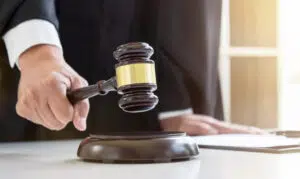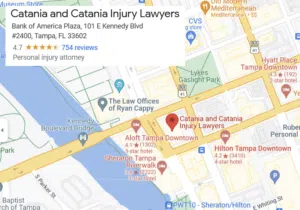
Personal injury cases often involve complicated issues. These include how badly the plaintiff was injured and the financial cost they incurred. Lawyers need to explain these issues (a) to support their arguments for compensation and (b) make it easier for jurors to understand complicated issues when cases go to trial.
Experts often play a fundamental role in helping personal injury lawyers do this.
Table of Contents
Expert Witness Definition
The law, at Florida Rule of Civil Procedure 1.390, defines an expert witness as a:
“person duly and regularly engaged in the practice of a profession who holds a professional degree from a university or college and has had special professional training and experience, or one possessed of special knowledge or skill about the subject upon which called to testify.”
In simpler terms, an expert is someone who is recognized as a specialist or professional in a certain field. They’re someone with specialized knowledge on a topic that an average person doesn’t have.
How Are Expert Witnesses Qualified & What’s Their Role?
Florida Statute 90.702 lists the qualifications to testify as an expert:
- The person must have the needed “knowledge, skill, experience, training, or education”
- There must be enough facts to support the expert’s testimony
- Principles and methods have to be reliably applied to the facts.
The role of the expert witness is to provide the “scientific, technical, or other specialized knowledge [that] will assist the trier of fact in understanding the evidence or determining a fact in issue.”
Often this testimony helps establish the severity of the plaintiff’s injuries, their pain and suffering, anticipated medical expenses in the future, and lost wages or diminished earning capacity.
Discovery Related to Expert Witnesses
Before trial, parties share necessary information with each other. This process is called discovery, and it’s governed by Florida Rule of Civil Procedure 1.280. Discovery includes basic information, details about the expert’s involvement, and compensation.
Basic Information
The parties may send each other written questions, called interrogatories. These ask the other party to identify the experts they expect to use.
Additionally, they may seek the “substance of the facts and opinions to which the expert is expected to testify and a summary of the grounds for each opinion.”
Scope of Involvement
The parties may also ask how involved the expert is in the case. Discoverable information includes the expert’s general litigation experience and the percentage of time they work for plaintiffs or defendants. Finally, the responding party must list other cases the expert has testified in.
Compensation
Expert witnesses spend time responding to discovery requests. They get paid compensation for this.
Voir Dire – Proving an Expert is an Expert
At trial, the party calling an expert witness must satisfy the court that the witness is qualified. They do this by asking the expert questions like:
- Name
- Occupation, position, and current job duties
- Education, training, degrees held, and experience
- Memberships in organizations and professional licenses
- Published technical papers
- Details about the expert’s methods and principles used.
If the court is satisfied, then the expert may testify.
Types of Expert Witnesses in Personal Injury Cases
There are a lot of fields of expertise needed in personal injury cases, including:
Economist
When the plaintiff is injured, it may impact their ability to work. If the injury is expected to affect the plaintiff’s ability to earn a living for a long time, then an issue that arises is diminished earning capacity. An economist can help the jury understand how the plaintiff’s reduced ability to work may decrease the amount of compensation they can receive over their lifetime.
Electronic Control Module Specialist
Many serious or fatal injuries occur when a semi-truck collides with a passenger vehicle. Today’s semi-trucks are equipped with electronic control modules (ECMs). These embedded devices monitor and collect data about the semi-truck’s speed, braking, and engine functions. The ECM specialist can explain how this recorded data can provide insight into why a collision may have occurred.
Neurologist
These experts specialize in the diagnosis and treatment of nervous system disorders. Their testimony is often necessary because many vehicle accidents cause severe neurological damage to those involved.
Oncologist
Many personal injury claims deal with defective products or dangerous drugs that may cause cancer. A medical doctor focusing on treating cancer through radiotherapy, surgery, and other procedures is called an oncologist. This expert can help establish the plaintiff’s injuries and further treatment options for their cancer.
Orthopedist
This medical doctor treats bone injuries, a common occurrence in the most prevalent personal injury case – a vehicle accident. The orthopedist can testify as to the severity of the injury and future anticipated medical needs the plaintiff may have. This testimony is often critical to the outcome of the trial.
Pain Management Specialist
Everyone talks about recovering from a severe injury, but the reality is that some injuries are bad enough that the plaintiff will have to endure a lifetime of pain. The pain management specialist can testify about the long-term pain medication needs of the victim.
Toxicologist
Unfortunately, many vehicle collisions and other serious accidents are the result of the defendant using legal substances or illegal drugs. The toxicologist can provide testimony about how the drug use may have contributed to the occurrence of an accident.
Benefit From Our Relationships With Trusted Tampa Expers
At Catania and Catania Injury Lawyers, our experienced Tampa personal injury attorneys don’t just know the law. We also know the right expert witnesses to hire so that your case can be clearly presented to the jury.
Since our founding in 1992, we’ve been working hard to cultivate relationships with leading specialists and professionals in the Tampa Bay area. When you turn to us for help, we put our network and resources to work for you. Call us today at (813) 222-8656 to schedule a free consultation or contact our Tampa, Florida law office to learn more.




